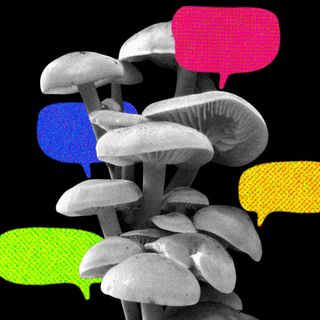Doesn’t Patrick Bateman seem like a person who wouldn’t stop bragging about how well his investments in cryptocurrency paid off? Not only was Christian Bale’s character from 2000’s American Psycho a typical “finance bro,” but he also appeared to embody the personality traits of what’s called the “dark tetrad.”
The “dark triad”-personality consists of the traits of narcissism, psychopathy, and Machiavellianism, which is characterized by “manipulativeness, callousness, and indifference to morality.” The “dark tetrad” adds another trait to the mix: sadism. The malevolent nature of these traits — like “extreme selfishness and taking advantage of others without empathy,” for instance — has earned them the adjective “dark.”
A new study published in Personality and Individual Differencesexplores the appeal of investing in crypto among individuals embodying the “dark tetrad.” The researchers arrived at their findings by analyzing the responses of more than 500 people — who completed personality surveys besides answering questions that enabled the researchers to gauge their attitudes towards investing in crypto.
“Large fluctuations in cryptocurrency prices are common, which makes them a highly speculative investment. What kind of people are willing to take the risk, and what motivates them?” Di Wang, Brett Martin, and Jun Yao — al co-authors of the study — wrote in The Conversation.
Related on The Swaddle:
How Crypto ‘Bro’ Culture Around Finance Is the New Toxic Masculinity
“We identified two main areas of appeal. First, the high risks and high potential returns of crypto trading make it attractive to the kind of people who like gambling. Second, cryptocurrencies are not issued or backed by governments like traditional or ‘fiat’ currencies. This makes them attractive to people who distrust government,” they noted.
Machiavellians’ belief in government conspiracies, as the researchers pointed out, makes crypto-investments lucrative to them since the currency isn’t strictly monitored — or, in some parts of the world, even properly regulated — by traditional governments.
What makes the prospect of crypto tempting to individuals embodying subclinical narcissistic traits — often characterized by “grandiose fantasies and behavior, such as a preoccupation with thoughts of personal success, power, and attractiveness or sex appeal” — is their overconfidence, which makes it easier for them to believe they’re going to make large profits from their investments and live the lavish life they deserve.
As for subclinical — or “almost” — psychopaths, who are known to be “attracted to power and money the way sharks are attracted to chum,” it is the fear of missing out that makes them bid up crypto-prices even to all-time highs.
Related on The Swaddle:
A Dictionary Picked ‘NFT’ as 2021’s Word of the Year
Sadism, however, doesn’t prima facie seem to have much to do with investing in crypto. “At first glance, buying crypto is unlikely to harm others. However, we found sadists like crypto because they do not want to miss out on investment rewards either. To them, perhaps both the pleasure from seeing another’s pain and the fear of missing out are related to selfishness,” Wang, Martin, and Yao explained.
While the team clarified that not everyone who invests in crypto displays the “dark tetrad”-traits, they noted that the allure of cryptocurrency can be pretty strong for people who do exhibit them. “A common reason to invest in crypto is the hope of earning high returns. Beyond the desire to build wealth, our research shows dark personality traits also drive crypto buying,” Wang, Martin, and Yao added.
The research doesn’t necessarily imply that investing in cryptocurrencies is a “bad” thing. What it does, instead, is try to gain greater insights into what makes the digital economy appealing to some — and not so much to others.




